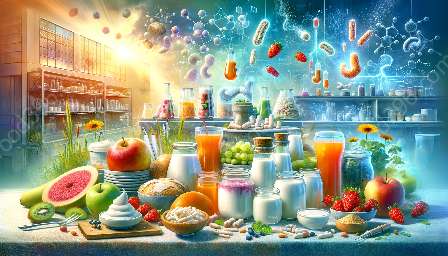In today's fast-paced world, it's vital to pay attention to our nutritional intake. From the foods we eat to the drinks we consume, everything plays a substantial role in our overall well-being. This comprehensive guide is designed to provide a deep understanding of nutrient deficiencies, their impact, and the science behind maintaining a balanced diet.
What Are Nutrient Deficiencies?
Nutrient deficiencies occur when the body doesn't receive an adequate amount of essential vitamins, minerals, and other nutrients. These deficiencies can manifest in various ways, affecting both physical and mental health. Common nutrient deficiencies include vitamin D, iron, vitamin B12, and calcium.
Causes of Nutrient Deficiencies
Several factors can contribute to nutrient deficiencies. Poor dietary choices, restrictive eating habits, intestinal disorders, and certain medical conditions can all lead to inadequate nutrient absorption. Additionally, consuming processed foods and beverages high in sugar can deplete essential nutrients in the body.
Impact on Health
Nutrient deficiencies can have a significant impact on overall health. For instance, a lack of vitamin D may lead to weakened bones, increased risk of infections, and compromised immune function. Iron deficiency can cause anemia, resulting in fatigue, weakness, and cognitive impairment. Furthermore, inadequate intake of calcium can lead to bone-related issues, such as osteoporosis.
Connection to Nutrition Science
Nutrient deficiencies are deeply connected to the field of nutrition science. Understanding the bioavailability of nutrients, the body's metabolic processes, and the impact of food processing methods on nutrient content are all crucial aspects of nutrition science. By delving into these areas, experts in the field can provide valuable insights into preventing and addressing nutrient deficiencies.
Prevention and Treatment
Preventing nutrient deficiencies begins with maintaining a well-balanced diet rich in fruits, vegetables, lean proteins, and whole grains. Additionally, consulting with a registered dietitian or nutritionist can help identify specific nutrient needs and create a personalized dietary plan. For those with existing deficiencies, supplementation and medical interventions may be necessary, guided by healthcare professionals.
Utilizing Food & Drink
Food and drink play a pivotal role in addressing nutrient deficiencies. Incorporating nutrient-dense foods such as leafy greens, nuts, seeds, and fortified products can help meet daily nutritional requirements. Additionally, consuming hydrating beverages like water, herbal teas, and natural fruit juices can support overall health and aid in proper nutrient absorption.
Conclusion
Understanding and addressing nutrient deficiencies is crucial for maintaining optimal health. By exploring the connection between nutrition science and food & drink, individuals can make informed choices that support their overall well-being. Embracing a holistic approach to nutrition and prioritizing nutrient-rich foods and beverages can pave the way toward a healthier and more vibrant life.

